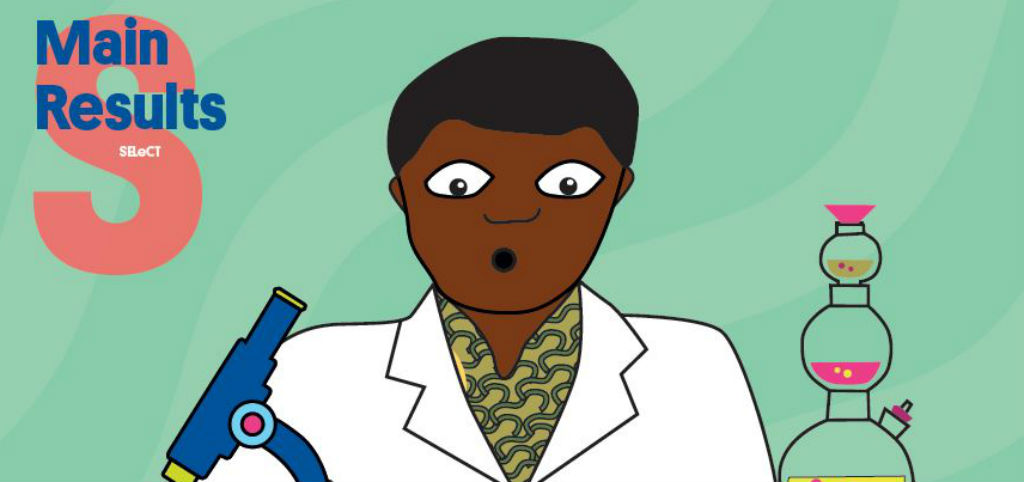Just over one year after its conclusion, the SELeCT project has published its third article resulting from a series of activities aimed at strengthening research capacities in Liberia. The project, that started in February 2016 and ended in August 2017, was funded by the EDCTP and led by ISGlobal – an institution supported by “la Caixa” Foundation- in collaboration with the Juan Ciudad Foundation and the Saint Joseph’s Catholic Hospital (SJCH) in Monrovia.
The Ebola epidemic in West Africa (2014-2016) revealed the need to strengthen capacities to carry out research and clinical trials in the affected countries. This was precisely the goal of SELeCT that, between February 2016 and July 2017, trained SJCH staff in good clinical and laboratory practices and performed the first research study in the hospital, on malaria prevalence in pregnant women.
The training course included a practical exercise on malaria prevalence among women attending the hospital’s antenatal care service. Of the almost 200 women recruited during the exercise, 12% were infected by P. falciparum, most of whom were young, first-time mothers. “This is the first study in Liberia that evaluates malaria prevalence in pregnant women after the Ebola outbreak,” explains the principal investigator and ISGlobal researcher Alfredo Mayor. “Our molecular analysis revealed a high frequency of chloroquine-resistant parasites, but fortunately we did not detect markers of resistance to the first-line treatment, artemisinin.”
In a second study, the project analysed the barriers and opportunities for women to participate in clinical trials, through a series of interviews and group discussions. The results show that fear and mistrust in science, which were amplified during the Ebola outbreak, represent an important barrier. Proposed strategies to favor participation included education of the general public, engagement of traditional healers and community mobilization, as well as a greater effort by the scientific community to inform women on the study’s objectives. “We need to further empower women and tackle inequity issues,” says SELeCT coordinator Guillermo Martinez. “Only then we can ensure that this population, particularly vulnerable to malaria, will trust research results and eventually adopt new treatment and preventive measures,” he adds.
The third study aimed to explore community perceptions and attitudes regarding malaria through a series of interviews with different stakeholders. The results indicate that poverty, lack of education, corruption and mistrust in health systems weigh more than traditional beliefs in preventing access to control interventions recommended by the government. “To increase access and adherence to malaria treatment, we first need to understand the people’s needs and perceptions regarding the disease,” remarks Martínez.
In addition to the training activities and scientific publications, SELeCT provided the basis for IGORCADIA, a second capacity strengthening project in Liberia, also funded by the EDCTP and led by ISGlobal in collaboration with the SJCH and Juan Ciudad Foundation. “The goal of the project, which started less than one year ago, is to strengthen the capacities of the country’s regulatory authorities in the use and research of diagnostic tests for different infectious diseases,” explains project manager Cristina Muñoz.
References:
Martínez Pérez G, Tarr-Attia CK, Breeze-Barry B, et al. 'Researchers have love for life': opportunities and barriers to engage pregnant women in malaria research in post-Ebola Liberia. Malar J. 2018 Apr 2;17(1):132. doi: 10.1186/s12936-018-2292-7.
Martínez-Pérez G, Lansana DP, Omeonga S, et al. Prevalence of Plasmodium falciparum infection among pregnant women at first antenatal visit in post-Ebola Monrovia, Liberia. Malar J. 2018 Oct 11;17(1):357. doi: 10.1186/s12936-018-2506-z.
Tarr-Attia CK, Bassat Q, Breeze-Barry B, et al. Community-informed research on malaria in pregnancy in Monrovia, Liberia: a grounded theory study. Malar J. 2018 Oct 23;17(1):382. doi: 10.1186/s12936-018-2529-5.




